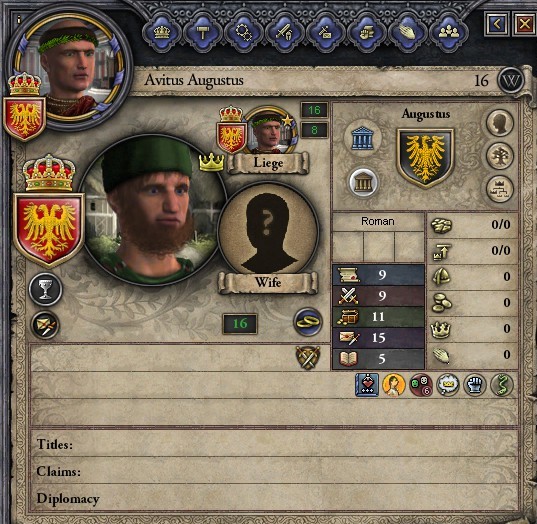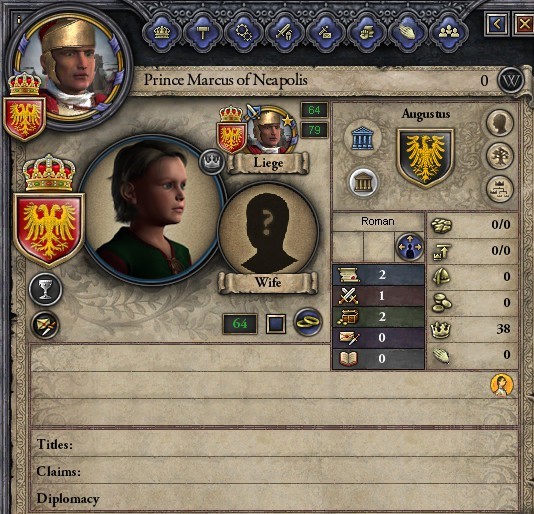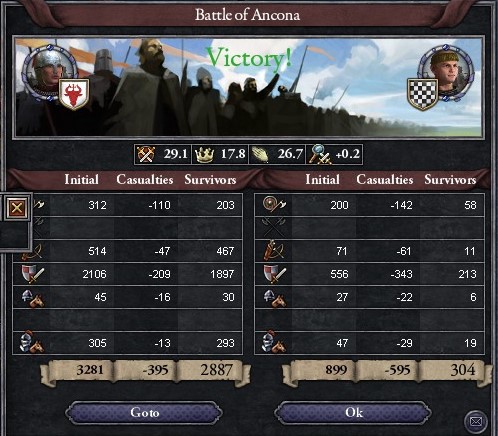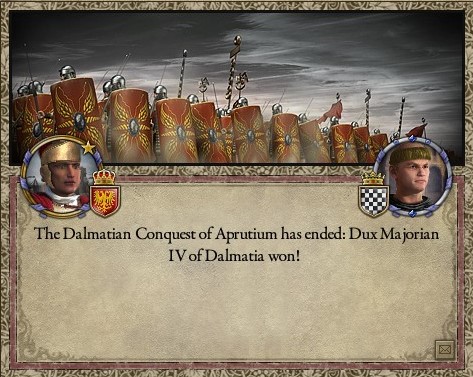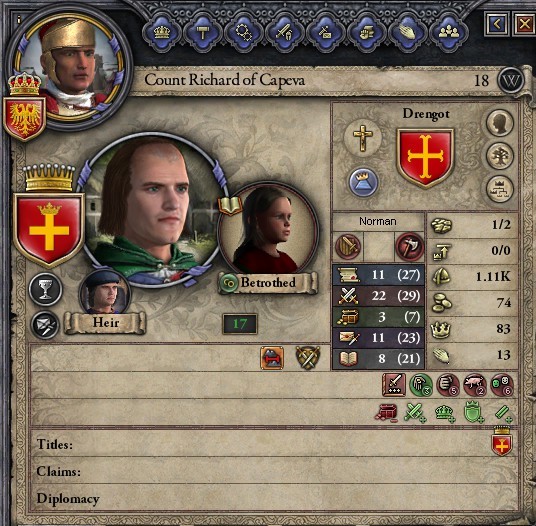Prologue
The State of Europe – 1066 CE
Europe C.1066
As dawn arose on the 1st January 1066, many in Europe must have felt the dream of Rome was finally coming to an end. The slow degradation of the Western Roman Empire and the sudden collapse of the East had proved that Roman steel was not what it once was. Indeed for centuries, the Emperors in Rome and Constantinople had struggled to stem both the tide of invaders and usurpers, all of whom would add yet more strain to the ailing Empire. The dire situation was not helped by the increasing divide between the countless religions that dominated different regions of Europe. Sol Invictus, Jesus Christ, Mithra, Jupiter, and Zeus all fought for the hearts and minds of citizens across the Mediterranean. Even before the events of 1065 the Empire was divided and weak, all it took was an extra push.
On 1st of December 1065 Dorotheos Argeadai, Hyparch of Thessalonica and great-grandson to the last Argeadai Emperor, Leon IX, denounced the Eastern Roman Emperor, Flavius Julianos, as a coward. He proclaimed that he should lead the Empire and that his leadership would bring them glory and renew the lost prestige of Rome. His words struck a chord with many of Flavius' client kings and vassals, and quickly one by one they too broke away, claiming that the Emperor's inept leadership had led the Empire to debt and ruin. By 25th of December, Flavius controlled little more than Constantinople and the lands surrounding it. But to Dorotheos' chagrin, his gambit had not gone to plan. Instead of proclaiming him Emperor, they chose freedom, for whilst Dorotheos was a respected warrior no one wanted to be ruled by an ambitious would-be conqueror.
Imperator of Basileia Rhomaion, Flavius Julianos was an emperor who never aspired to the title. Physically weak, martially deficient, and socially awkward, he often left his siblings to carry out the day to day running of the Empire. But his unwillingness to lead didn't mean he was idiotic, his passions lay in books, learning, and other scholarly pursuits. Sadly these hobbies do not hold empires together as he would find out.
As for the Western Roman Empire, things had barely changed, that is to say, they were still in the mess they had been for the last fifty years. Goths, Lombards, and Normans had all made their homes in Italy, with the Roman culture surviving in the lands surrounding the major Roman strongholds of Rome, Ravenna, Neapolis, Venetia, and Genoa. The authority of Rome itself barely extended out of the Eternal City, with Emperor Traianus III's rump state only just holding on to power. But contrary to popular belief, Roman power was not dead.
Princeps Traianus III of Rome was elected to the position by the Senate at the young age of fourteen. His ascension was made possible by both the dire situation of the Empire, and his father's connections with the Holy See. The Pope controlled everything within the eternal city, from the Senate to the council of the Emperor. But Traianus was different to his subservient father, he aspired a new united Empire that marched to victory under the sign of Christ.
The Augustans of Neapolis
Just to the south of Rome, in the Bay of the Naples, there ruled a man who had the blood of three divine leaders of men. The legacy of Julius Caesar, Augustus, and Alexander the Great were carried by this 'Dux Augustalis' and, to his followers, he was the next in the divine lineage of Emperors. His name was Alexander Laurentios Augustus. Born to Laurentios II, Alexander was raised with the idea that every Augustan grew up with, that he was the rightful ruler of Rome and that he would rebuild the legacy of his forefathers. This immense responsibility normally had two effects, it either made them ambitious statesmen with extraordinary abilities or as was normally the case, completely and utterly mad. To many of his contemporaries, Alexander seemed to be a mixture of both, inheriting the Augustan penchant for arrogance and zealotry of their own divine status. However, he was also a realist who knew that it an Empire was not just built on military conquests and divine right but also diplomacy and tact.
First Emperor of Rome, Augustus brought the Romans to a new age of domination over Mediterranean, controlling an Empire than spanned from the Atlantic to the Black Sea. His marriage to a princess of the Argead dynasty, the direct descendants of Alexander the Great, boosted his legitimacy further and gained him the respect of his Hellenic vassals. His bloodline would rule the Empire intermittently for nearly a thousand years, splitting into two different branches, the Julio-Argeadais in the east and the Augustans in the west.
When Laurentios II died, Alexander became the 22nd of his name to rule the Regnum of Neapolis. The kingdom itself was in a dire state, the Lombards continued to dominate Magna Graecia, and the Normans had overrun both the former Roman province of Apulia and the neighbouring city of Capua. It was clear the Emperor in Rome lacked the power to stop these incursions, and to Alexander, there was one reason why.
The Regnum of Neapolis controlled little more than the Bay of Neapolis and the surrounding areas.
Since the reign of the Valentinianus I, the Western Roman Empire had been dominated by Christianity which, despite its fractured nature, had effectively become the major religious force in Western Europe. However none of the different sects were as powerful as Catholicism, which under the Popes of Rome had become a force equal to the Emperor of Rome himself. To Alexander, this submission to both a jumped up priest and a Jewish heathen with delusions of grandeur made Rome not just weak, but subservient. “To be prostituted to followers of a Galilean peasant” said Alexander in a blistering speech to his councillors “is to reject the light of Rome and will of Augustus.” In rejection of Traianus III's Catholic regime, Alexander sent a demand to the Christian dominated Senate to depose the weak Emperor, renounce Christianity, and name him as the new Princeps of the Rome. As expected they rejected his demands outright and denounced Alexander as a traitor, who in turn broke away from Rome and rejected the authority of the Senate, claiming that emperors rule through divine will alone. As 1066 arrived, the stage was set for an Augustan to rule Rome once more.
Dux Augustalis Alexander XXII of Neapolis was rumoured by his men to be the next coming of both Augustus and Alexander the Great, claims that were often thrown about when an Augustan arose to the throne. However whilst this sycophancy had become tired trope, there was some merit in their claims. Alexander possessed the drive and ambition that had been lacking from his father and grandfather, traits which were valuable in the chaotic age he was born into.













